
Business
15:53, 24-Feb-2018
Iraq in Recovery: Baghdad dressmaker benefits from ICRC
By CGTN's Meng Qingsheng
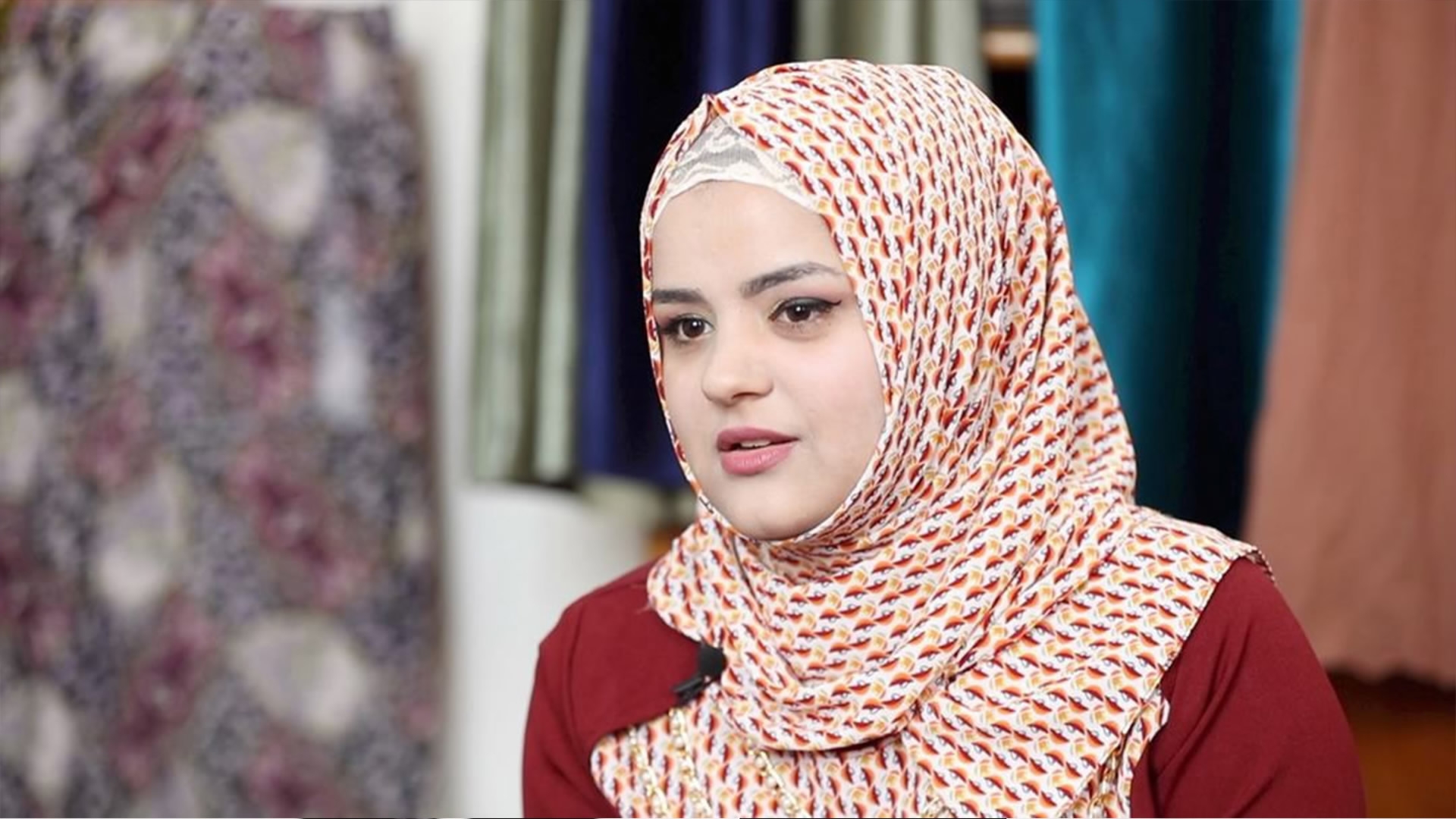
Decades of armed conflict, violence and high unemployment have left millions of people in Iraq struggling to make ends meet for their families. It's even harder for women-headed households.
Yassmin Abbas Ali, 21, got married at the age of 17, a common practice for a religious family in Iraq. But within the same year, she ended her relationship after suffering from domestic violence.
After the divorce, Yassmin started sewing at her parents’ home, having learned the basics of the trade from her mom and other family members.
She told CGTN that there are so many days that she cannot sleep until 6 a.m. as she cares so much about trying to do the best she can. But when she sees how much clients enjoy her designs, she tends to forget about the tiredness.
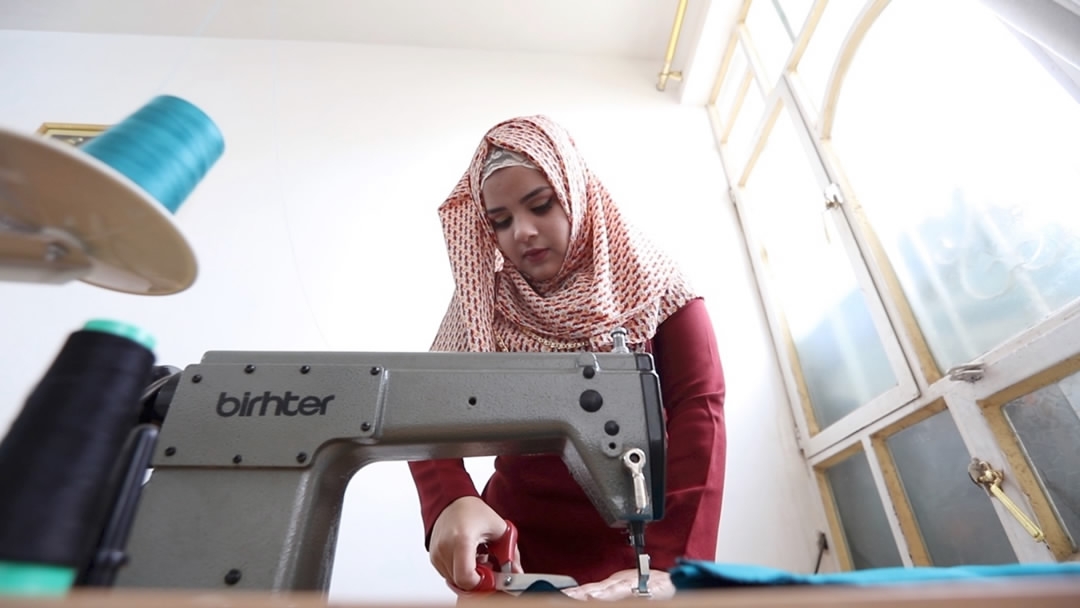
Yassmin received an ICRC grant on August 27, 2017, the day she bought new sewing tools. /CGTN Photo
Yassmin received an ICRC grant on August 27, 2017, the day she bought new sewing tools. /CGTN Photo
The tailor’s job allows Yassmin to survive difficult times. In August 2017, she received a grant provided by the International Committee of the Red Cross (ICRC). She was able to buy new sewing machines and increase the family income. She is one of 1,166 woman-headed-households and people with disabilities across Iraq who received ICRC grants to start small start-ups (mostly from home) in 2017.
Ala’a Mustafa, who works for the ICRC as an economic security field officer, says Yassmin has encouraged all Iraqi women and deserves the best as she was following her business plan.
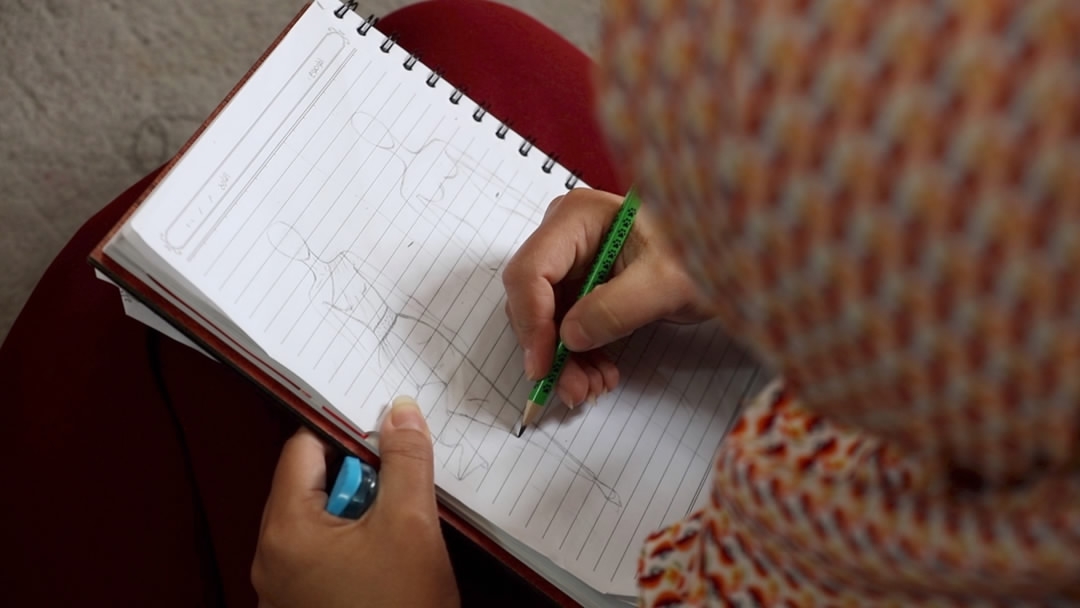
Yassin spends much of her time designing new clothes, she is fostering a spirit of craftsmanship. She believes she needs to work hard to bring the best out of herself. /CGTN Photo
Yassin spends much of her time designing new clothes, she is fostering a spirit of craftsmanship. She believes she needs to work hard to bring the best out of herself. /CGTN Photo
The primary purpose of the micro-economic initiative is to support cash income generation. More than 300,000 people across Iraq have benefited from the programs – most of them low-income families affected by the conflict in the country. Those who have benefited from the program include farmers, fishermen, shepherds and students targeted by the ICRC to help increase their income and better the quality of their lives.
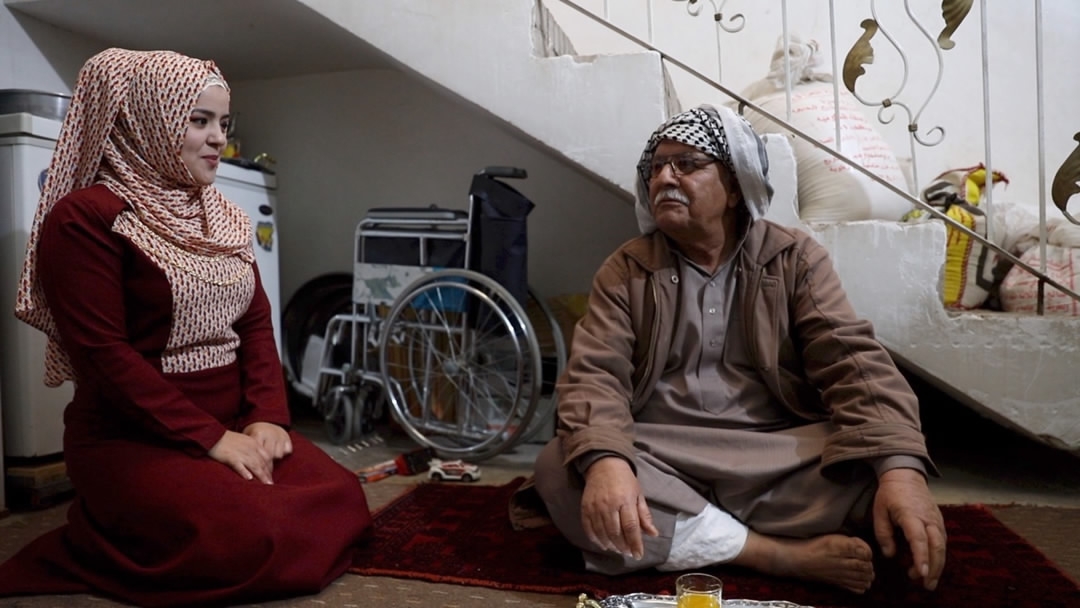
Yassmin’s family left Diyyala Province in 2006 due to sectarian conflict. They spent six years living inside a rented warehouse. Then they got a parcel of land in southern Baghdad and moved in. /CGTN Photo.
Yassmin’s family left Diyyala Province in 2006 due to sectarian conflict. They spent six years living inside a rented warehouse. Then they got a parcel of land in southern Baghdad and moved in. /CGTN Photo.
The family lives in a predominantly Shiite neighborhood in southern Baghdad. Some ended up there after escaping sectarian conflicts. And Yassmin’s family relocated from the neighboring Diyala Province 12 years ago. Her father worked as an official with the police. He was threatened a couple of times due to sectarian conflicts between Shiites and Sunnis. In 2006, after her grandma died, the family decided to move to Baghdad.
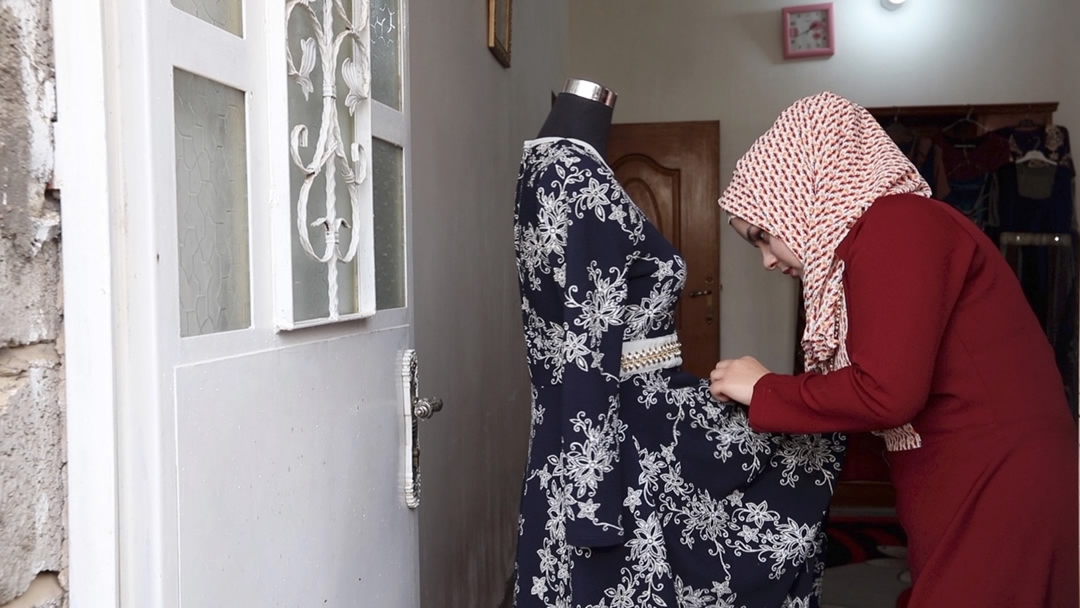
Yassmin doing final adjustments on a design before handing it to a client. /CGTN Photo
Yassmin doing final adjustments on a design before handing it to a client. /CGTN Photo
Yassmin is confident in her talent as a tailor and keeps improving. She dreams of opening her own fashion shop or factory before she turns 25. She says the economic program gives her an opportunity to rise up from tough times and now it’s time for her to continue the trend and bring the best out of herself.
6302km

SITEMAP
Copyright © 2018 CGTN. Beijing ICP prepared NO.16065310-3
Copyright © 2018 CGTN. Beijing ICP prepared NO.16065310-3